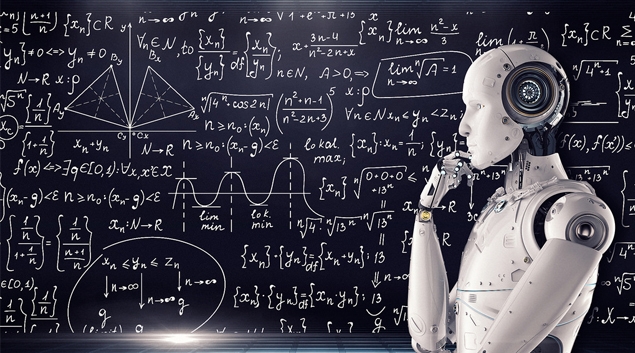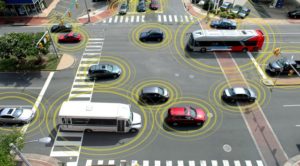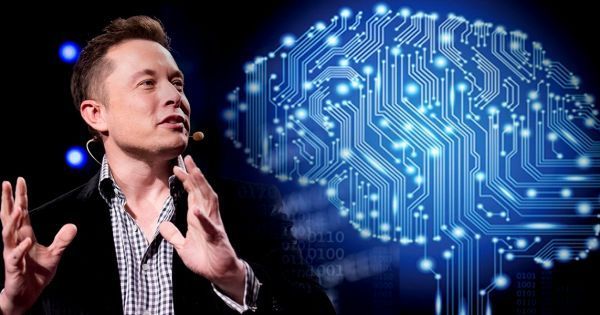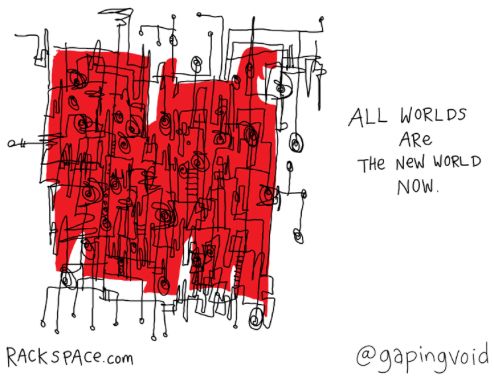Archive for the ‘driverless cars’ category
Jun 24, 2019
Is artificial consciousness the solution to AI?
Posted by Peter Cawdron in categories: computing, driverless cars, Elon Musk, ethics, evolution, futurism, homo sapiens, human trajectories, information science, law enforcement, machine learning, science, Skynet, supercomputing

Artificial Intelligence (AI) is an emerging field of computer programming that is already changing the way we interact online and in real life, but the term ‘intelligence’ has been poorly defined. Rather than focusing on smarts, researchers should be looking at the implications and viability of artificial consciousness as that’s the real driver behind intelligent decisions.
Consciousness rather than intelligence should be the true measure of AI. At the moment, despite all our efforts, there’s none.
Significant advances have been made in the field of AI over the past decade, in particular with machine learning, but artificial intelligence itself remains elusive. Instead, what we have is artificial serfs—computers with the ability to trawl through billions of interactions and arrive at conclusions, exposing trends and providing recommendations, but they’re blind to any real intelligence. What’s needed is artificial awareness.
Elon Musk has called AI the “biggest existential threat” facing humanity and likened it to “summoning a demon,”[1] while Stephen Hawking thought it would be the “worst event” in the history of civilization and could “end with humans being replaced.”[2] Although this sounds alarmist, like something from a science fiction movie, both concerns are founded on a well-established scientific premise found in biology—the principle of competitive exclusion.[3]
Continue reading “Is artificial consciousness the solution to AI?” »
Tags: AI, Artificial Intelligence
Aug 17, 2017
Life or Death: Will Robo-Cars Swerve for Squirrels?
Posted by Johnny Boston in categories: automation, driverless cars, drones, electronics, ethics, fun, humor, media & arts, robotics/AI, transportation

Self Driving Cars and Ethics. It’s a topic that has been debated in blogs, op-eds, academic research papers, and youtube videos. Everyone wants to know, if a self-driving car has to choose between sacrificing its occupant, or terminating a car full of nobel prize winners, who will it pick? Will it be programmed to sacrifice for the greater good, or protect itself — and its occupants — at all costs? But in the swirl of hypothetical discussion around jaywalking Grandmas, buses full of school-children, Kantian Ethics and cost-maps, one crucial question is being forgotten:
What about the Squirrels?
Continue reading “Life or Death: Will Robo-Cars Swerve for Squirrels?” »
Tags: AI, auto, autonomous, autonomous AI, autonomous cars, cars, dilemma, driving, ethical dilemma, ethics, GPA, self driving, self driving car, squirrels, video
Aug 8, 2017
Today’s Transformation, Tomorrow’s Transportation
Posted by Alexandra Whittington in categories: driverless cars, futurism, robotics/AI, transportation
A Future Scenario by Shubham Sawant
Las Vegas: February 10, 2027
I woke up with the pleasing sound of alarm followed by a sweet voice came, “Good morning. It’s 7:00 am. You have reached at MGM, Las Vegas.” I was sound asleep for the last 8 hours in my car while it was driving me from San Francisco to Las Vegas. I got out with my luggage and the car zoomed away to pick-up another passenger. 
The biggest change happed in last few years is people stopped buying cars. Big companies established their network of taxi services. With the push of a button on cell phone the car arrives wherever you are. The technology is so advanced that the car nearest to you finds your request. You enter the destination and the algorithm works to find the fastest most economical path to your destination and you are on your way.
Most of the parking spaces are gone under restructuring. People have converted their parking garages into recreational rooms or extra bedrooms or what not. The entire look and feel of cities has gone under transformation. The accident rates are almost negligible and car insurance industry is almost brink of extinction. Similarly oil industry stocks are at the bottom and renewable energy is booming. The science fiction has become reality.
Shubham Sawant is a Junior at the University of Houston as a Mechanical Engineering Technology Major. This scenario was part of a project he completed for the course TECH 1313-Impact of Modern Technology on Society.
Shubham says: “I have been very fascinated with the future and how it will be like. Every year, new and new people come up with amazing ideas and products that help us further think about how the future will be. I love to read and I almost always try to read anything that relates to the future. Since I was 4, I have grown to love automotive culture. You will see me talking about cars in a conversation. I love sports like soccer, swimming and cycling. I plan to work in the automotive industry and hopefully get a career to design and manufacture automobiles!”
Tags: AI, future, technology
Jul 20, 2017
Autonomous Cars: The Ultimate Job Creator?
Posted by Johnny Boston in categories: automation, business, driverless cars, drones, futurism, media & arts, robotics/AI, transportation
In our last film, we explored how the introduction of autonomous, self-driving cars is likely to kill a lot of jobs. Many millions of jobs, in fact. But is it short sighted to view self-driving vehicles as economic murderers? Is it possible that we got it totally wrong, and automated vehicles won’t be Grim Reapers — but rather the biggest job creators since the internet?
In this video series, the Galactic Public Archives takes bite-sized looks at a variety of terms, technologies, and ideas that are likely to be prominent in the future. Terms are regularly changing and being redefined with the passing of time. With constant breakthroughs and the development of new technology and other resources, we seek to define what these things are and how they will impact our future.
Jul 13, 2017
Will Self-Driving Cars Kill Your Job?
Posted by Johnny Boston in categories: automation, business, driverless cars, drones, futurism, media & arts, robotics/AI, transportation
Self-driving cars are pretty cool. Really, who wouldn’t want to spend their daily commute surfing social media, chatting with friends or finishing the Netflix series they were watching at 4 am the night before? It all sounds virtually utopian. But what if there is a dark side to self-driving cars? What if self-driving cars kill the jobs? ALL the jobs?
In this video series, the Galactic Public Archives takes bite-sized looks at a variety of terms, technologies, and ideas that are likely to be prominent in the future. Terms are regularly changing and being redefined with the passing of time. With constant breakthroughs and the development of new technology and other resources, we seek to define what these things are and how they will impact our future.
Jul 10, 2017
Follow the money – the future evolution of automotive markets
Posted by Alexandra Whittington in categories: business, disruptive technology, driverless cars, futurism, transportation
The automotive industry is undergoing a period of rapid and radical transformation fueled by a range of technological innovations, digital advancements and wave after wave of new entrants and alternative business models; as a result, the entire sector is seeing major disruption.
Tags: future, technology
Feb 15, 2016
The Many Uses of Multi-Agent Intelligent Systems
Posted by Dan Faggella in categories: complex systems, disruptive technology, driverless cars, energy, innovation, robotics/AI, software
In professional cycling, it’s well known that a pack of 40 or 50 riders can ride faster and more efficiently than a single rider or small group. As such, you’ll often see cycling teams with different goals in a race work together to chase down a breakaway before the finish line.
This analogy is one way to think about collaborative multi-agent intelligent systems, which are poised to change the technology landscape for individuals, businesses, and governments, says Dr. Mehdi Dastani, a computer scientist at Utrecht University. The proliferation of these multi-agent systems could lead to significant systemic changes across society in the next decade.

Image credit: ResearchGate
Continue reading “The Many Uses of Multi-Agent Intelligent Systems” »
Jan 20, 2016
Report by Robert Scoble from CES | KurzweilAI
Posted by Odette Bohr Dienel in categories: augmented reality, driverless cars, electronics, virtual reality
“CES wrapped up last week and I can say it was the best one I’ve seen in a decade. Three big stories jumped out this year:
1. VR.
2. Self driving cars.
3. AR.”
Oct 13, 2015
Does The Potential of Automation Outweigh The Perils?
Posted by Dan Faggella in categories: automation, disruptive technology, driverless cars, economics, military
These days, it’s not hard to find someone predicting that robots will take over the world and that automation could one day render human workers obsolete. The real debate is over whether or not the benefits do or do not outweigh the risks. Automation Expert and Author Dr. Daniel Berleant is one person who is more often on the side of automation.
There are many industries that are poised to be affected by the oncoming automation boom (in fact, it’s a challenge to think of one arena that will not in some minimal way be affected). “The government is actually putting quite a bit of money into robotic research for what they call ‘cooperative robotics,’” Berleant said. “Currently, you can’t work near a typical industrial robot without putting yourself in danger. As the research goes forward, the idea is (to develop) robots that become able to work with people rather than putting them in danger.”
While many view industrial robotic development as a menace to humanity, Berleant tends to focus on the areas where automation can be a benefit to society. “The civilized world is getting older and there are going to be more old people,” he said. “The thing I see happening in the next 10 or 20 years is robotic assistance to the elderly. They’re going to need help, and we can help them live vigorous lives and robotics can be a part of that.”
Berleant also believes that food production, particularly in agriculture, could benefit tremendously from automation. And that, he says, could have a positive effect on humanity on a global scale. “I think, as soon as we get robots that can take care of plants and produce food autonomously, that will really be a liberating moment for the human race,” Berleant said. “Ten years might be a little soon (for that to happen), maybe 20 years. There’s not much more than food that you need to survive and that might be a liberating moment for many poor countries.”
Continue reading “Does The Potential of Automation Outweigh The Perils?” »














